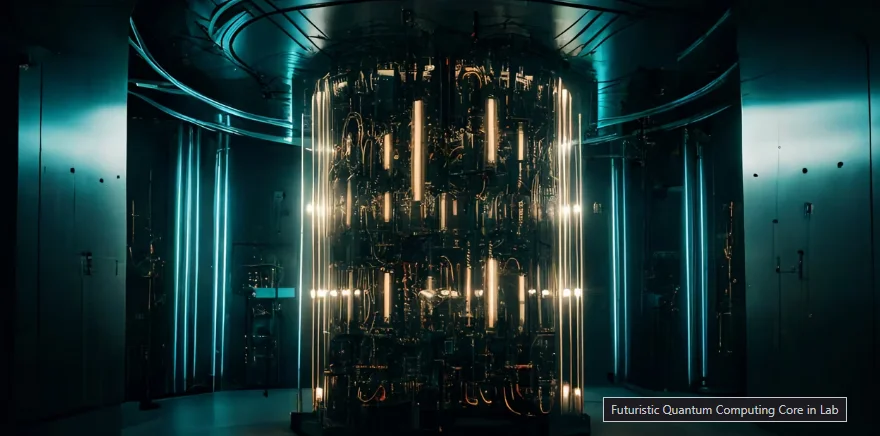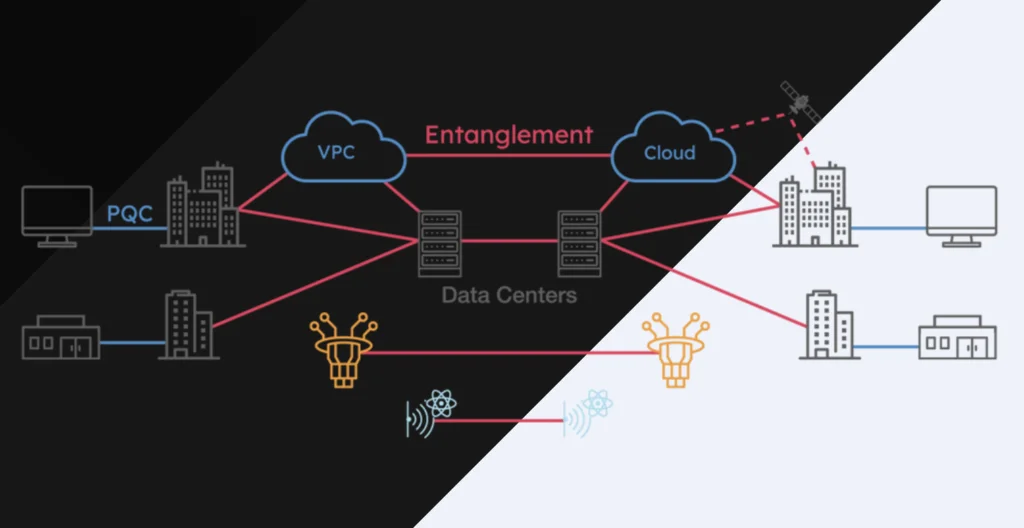Insider Brief
- QuSecure™ released a product designed to fortify existing Cisco router-to-router communications against emerging quantum threats.
- QuProtect leverages advanced crypto-agile post-quantum cryptography.
- The product is meant to protect critical network infrastructures for enterprises, government, and telecommunications providers.
PRESS RELEASE — QuSecure™, Inc., a leader in post-quantum cryptography (PQC), today unveiled QuProtect Core Security, a product designed to fortify existing Cisco router-to-router communications against emerging quantum threats. Leveraging advanced crypto-agile post-quantum cryptography, QuProtect Core Security offers a seamless and robust security layer, delivering best-in-class protection for critical network infrastructures for enterprises, government, and telecommunications providers.
In light of the threat quantum decryption poses to data security, the U.S. federal standards body NIST is slated to publish the official post-quantum cryptographic standards early this year. The White House has already mandated federal government agencies to begin upgrading networks to quantum-safe encryption. In an era where quantum computing presents a significant risk to public-key cryptography in widespread use, QuProtect Core Security simplifies the upgrade cycle, adding an important layer of protection for Cisco routers capable of running IKEv2 and IPsec today, while leveraging the forward-looking Cisco Secure Key Integration Protocol (SKIP).
Moreover, the solution requires no hardware upgrades, enabling Cisco service providers, government and enterprise customers to leverage an external post-quantum key distribution system and seamlessly upgrade their encryption to protect data transmissions most at risk of today’s harvest now, decrypt later (HNDL) threats. This customer-first solution is specifically engineered to integrate with Cisco’s existing router frameworks, providing a low-lift and low-risk upgrade that safeguards data with the next generation of cryptographic standards.

Illustrating the concepts that power QuProtect Core Security, a new IPsec case study white paper authored by Cisco Distinguished Architect Craig Hill, QuSecure Security Architect Joey Lupo, and QuSecure Chief Architect Scott Kawaguchi is available at https://www.qusecure.com/ipsec-case-study-with-cisco-core-networking/. The paper gives a technical overview of the solution architecture and describes a live demonstration completed between QuSecure and Cisco.
“QuProtect Core Security represents a pivotal advancement in our mission to secure digital communications from the quantum threat, and from cryptographic vulnerabilities more broadly,” said Joey Lupo, Product Security Architect at QuSecure. “By making post-quantum cryptography accessible and straightforward to deploy for customers operating new or mature Cisco networks, we’re bringing cryptographic resilience to their most critical data links.”
QuSecure productized QuProtect Core Security based on demand from its customer base. This technology opens doors for customers in the telecom, financial services, and government sectors, providing an ideal starting point for the current post-quantum cryptography migration. QuProtect Core Security offers customers a minimally invasive way to gain insight and control over their encryption for critical use cases including core network, mobile network backhaul, data center to data center communications, and more—all without dependencies on cryptographic discovery and inventory processes. Core Security utilizes QuSecure’s award-winning interface and control plane so web applications, network layer and now core networking can all be protected with crypto-agility supporting the NIST suite of post-quantum cryptographic algorithms.
“I am incredibly proud of our team’s dedication and hard work,” said Rebecca Krauthamer, Co-Founder and Chief Product Officer at QuSecure. “QuProtect Core not only safeguards core network communications with post-quantum encryption, but also integrates orchestration, inventory, telemetry, and cryptographic controls into a single pane of glass. It is a testament to the power of interoperable frameworks and the growing importance of industry collaboration in cybersecurity to create solutions that truly rise above the evolving challenges we face. Together we are forging a path to cyber resilience.”
Key Features of QuProtect Core Security include:
- Crypto-Agile Framework: Layering of classical and quantum-safe algorithms which adapt to a dynamic cryptographic ecosystem of new algorithms, attacks, and standards, ensuring long-term resilience against both classical and quantum attacks.
- No Rip-and-Replace Integration: Designed for easy overlay integration with existing Cisco routers, minimizing disruption and maximizing efficiency.
- Advanced PQC Algorithms: Incorporates the NIST suite of post-quantum cryptographic algorithms, offering state-of-the-art security.
- Cost-Effective Alternative to QKD: Scalable, software-based alternative or augmentation to extend quantum-resistant ranges for quantum key distribution (QKD) networks, which addresses distance-limited point-to-point and hardware-intensive challenges.
- Telemetry and Orchestration in a Single Pane of Glass: Addresses the full cryptographic lifecycle of discovery, inventory, quantum-resistance migration, orchestration and crypto-agility, and continuous monitoring.
QuProtect Core Security is the result of extensive research and collaboration with leading cryptographic experts. Its launch signifies a major leap forward in making quantum-resistant encryption technologies accessible to organizations worldwide. QuSecure invites industry partners, network administrators, and cybersecurity professionals to explore the benefits of QuProtect Core Security, as demonstrated with Cisco using SKIP, in the movement towards a quantum-secure and cyber resilient future. For more information about QuProtect Core Security and QuSecure’s innovative approach to post-quantum cryptography, visit https://www.qusecure.com/quprotect-core-security.
QuSecure’s QuProtect software uniquely combines zero-trust, next-generation post-quantum cryptography, orchestrated crypto-agility, and active defense into a comprehensive and interoperable cybersecurity suite. The end-to-end approach is designed to protect the entire information lifecycle as data moves across networks.
If you found this article to be informative, you can explore more current quantum news here, exclusives, interviews, and podcasts.














